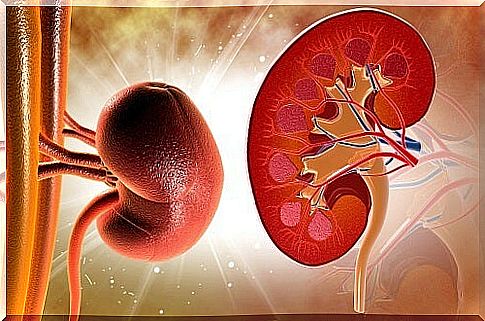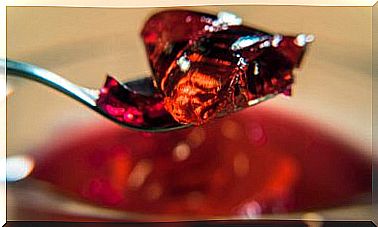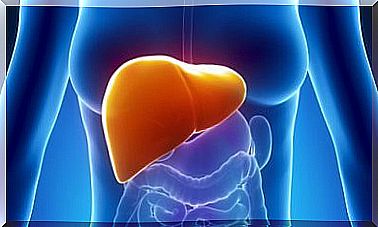Renal Sclerosis Syndrome
Renal sclerosis syndrome is a pathology that includes several signs and symptoms in the kidney derived from the systemic sclerosis process. The biggest complication of this disease are precisely kidney crises in which the vessels become stiff.
The kidneys act as a filter for the blood. In this way we are able to reabsorb fluid in situations of dehydration or to expel a larger volume of urine in cases of high blood pressure. This meshing is due to a complex mechanism that results in the interaction of several ion channels in the different parts of the nephron (the nephron is the smallest functional unit of the kidney).
When there is a process of sclerosis, the renal arteries and veins lose their elastic capacity and stop regulating the caliber of the vessel. In this way they are no longer able to modulate blood pressure because they become hard as they thicken.
Most common causes and symptoms

The main cause of renal sclerosis is systemic sclerosis. This condition is defined as a general disease in which damage occurs on the endothelium. In the case of renal vessels, it is especially serious since the kidney works 24 hours a day and filters all the blood in the body several times through its different components.
Furthermore, when thickening occurs it is almost always bilateral. This worsens the patient’s situation if we compare it with a unilateral pathology. Well, the damage to one kidney can be offset by the other if it is moderate.
However, in this case the severity depends on the ability to manage high blood pressure and blood volume. If it is possible to compensate by drugs, it can be maintained for a time. But if it is irreversible, more drastic measures must be taken.
Symptoms
The signs and symptoms share the general characteristics of systemic sclerosis, but with some peculiarities typical of kidney involvement. The most frequent are the following:
- Malignant hypertension : this entity is defined as a very high increase in blood pressure, with other signs of intracranial hypertension such as hypertensive retinopathy in the fundus. It is an emergency situation and the doctor must immediately administer parenteral medication.
- Kidney failure: endothelial damage decreases the kidney’s ability to function properly. In addition to failing to manage the stress, the vessels are totally or partially occluded by the thickening of the vascular wall during sclerosis. This explains why kidney blood flow is reduced. Being bilateral, sometimes it is necessary to consider a transplant.
- Microangiotic hemolytic anemia: anemia is defined as a decrease in hemoglobin. This substance is responsible for transporting oxygen in the red blood cells to the rest of the body. When hemolysis occurs, it means that the red blood cells are destroyed and cannot reach their destination. Lack of oxygen supply to the kidney causes irreversible damage.
- Hyperreninemia: This term refers to an increase in renin above normal values. Renin is a substance secreted by the kidney that helps control blood pressure. Thus, the higher the amount of renin, the higher the blood pressure.
Renin is the first intermediate in the renin-angiotensin-aldosterone system. Thanks to this ability of the kidney to secrete hormones, it is able to respond when the sensors of the juxtaglomerular apparatus warn of a drop in blood pressure.
In this case, the increase in renin is completely pathological and contributes to worsening hypertension.
Renal sclerosis treatment

In cases of mild sclerosis, administering antihypertensive drugs is sufficient. However, this situation tends to evolve and the most common is that several drugs have to be combined. The final stage is to consider a kidney transplant if the patient has high blood pressure levels.
Either way, it is always combined with the treatment of systemic sclerosis. The objective is to achieve the best possible quality of life for the patient. This is achieved by delaying the progression of the pathology and establishing early treatment.









